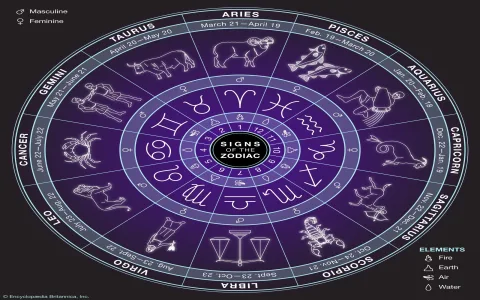Let me tell you something, dating a Virgo man isn’t some romantic comedy. It’s more like an intense, long-term DIY project where the manual is missing, and the instructions are written in invisible ink. I’ve been with my Virgo, Mark, for five years now, and I documented every single excruciating step of figuring him out. This isn’t astrology talk; this is a survival record, a practice log I hammered out just so I could keep my sanity.
Phase One: Hitting the Wall of Perfection
When I first met Mark, he seemed totally chill. Polite, well-dressed, attentive. Easy peasy, I thought. I was used to dating guys who were disorganized messes. Then I moved in. That’s when the practice began, and boy, did I learn fast. It wasn’t just that he liked things tidy; he needed everything to adhere to a specific, internal blueprint only he could see.
My first major documented incident was the ‘Towel Incident.’ I used a bath towel twice, then tossed it in the laundry hamper. He fished it out. “What are you doing?” I asked. He looked at me like I was insane. “That towel is rated for four uses before washing. It’s inefficient to wash it now.”
I started noticing patterns immediately. I had to shift from being a spontaneous person to being a meticulous planner. I didn’t just go to the store; I scheduled the trip, itemized the list by aisle efficiency, and accounted for traffic delays. If I messed up his routine—even slightly—he didn’t yell. That’s the trick. He just got quiet, intensely irritable, and then started passive-aggressively fixing whatever I broke. It drove me nuts. I realized I was fighting an uphill battle against his innate need for structural utility.
Phase Two: Cataloging the Critical Brain
After six months, I was ready to quit. I felt constantly judged. If I cooked, he’d note the excess pepper. If I dressed, he’d point out the frayed thread on the cuff. He didn’t mean to be cruel; his brain just operates as a continuous, non-stop quality control inspection unit. It criticizes everything because it genuinely believes it is helping improve the system.
I decided to treat this like a research project. I bought a small notebook—later a spreadsheet—and started tracking two main columns:
- My Action/Behavior: (e.g., Left coffee mug on desk overnight.)
- His Reaction/Trigger: (e.g., Silent cleaning, followed by a detailed lecture on bacteria growth and time management.)
What I discovered, through sheer volume of data, was that his criticisms almost always boiled down to three things: Waste, inefficiency, or future risk. This was the breakthrough moment in my practice.
I learned that I couldn’t stop the criticism, but I could reframe it. Instead of arguing why my system was fine, I started asking him to explain his ideal system. I stopped taking his critiques personally and started viewing them as bug reports submitted by a very detailed, slightly overworked internal consultant.
Phase Three: Mastering the Virgo Love Language
Once I accepted that their core traits are analysis and service, dating him became much easier. It turns out, Virgos don’t do grand romantic gestures often. They show love through relentless, practical attention to detail.
For example, Mark would never write me a sprawling poem. But I once complained about my car making a funny noise. The next morning, he had woken up at 5 AM, driven it to the mechanic, and had it fixed and detailed before I even woke up. That’s their poetry—pure, efficient service.
My practice log evolved into a set of actionable rules. This is the finished product of my five-year deep dive:
The Core Virgo Male Traits (As Experienced by Me)
1. The Anxiety Engine: Virgo men worry about everything that could possibly go wrong, usually silently. If they are criticizing you, they are usually trying to eliminate perceived risk or failure. Don’t dismiss their worry; validate the concern, but offer a practical, immediate solution. Shut down the loop.
2. Utility First, Feelings Second: They value what is useful, clean, and sustainable. Emotional displays must be anchored in reality. If you have a problem, they need to fix it. If you just want to vent, you have to preface it with, “I just need you to listen, not fix anything,” otherwise, their brain malfunctions trying to calculate the solution.
3. Never Question the Schedule: They thrive on routine. If you break the routine, you are introducing chaos, and chaos is their greatest enemy. If you need a change, propose it with at least 48 hours notice, complete with a revised itinerary. This gives them time to analyze the proposed change and integrate it seamlessly.
4. Praise Their Effort, Not Just the Result: They are hard on themselves. They seek perfection and often feel they fall short. If he fixes a light switch or cleans the garage, don’t just say, “Looks good.” Say, “I really appreciate how much thought and effort you put into organizing those tools.” They respond strongly to recognition of their meticulous process.
I stopped trying to change him. I stopped trying to force spontaneity. Instead, I learned to integrate my chaotic existence into his finely tuned, highly organized machine. It took hundreds of documented fights, forced conversations, and countless hours analyzing mundane behavior, but I finally figured out the manual. And let me tell you, while it’s high-maintenance, once that engine is running smoothly, it’s the most reliable partner you will ever have.








